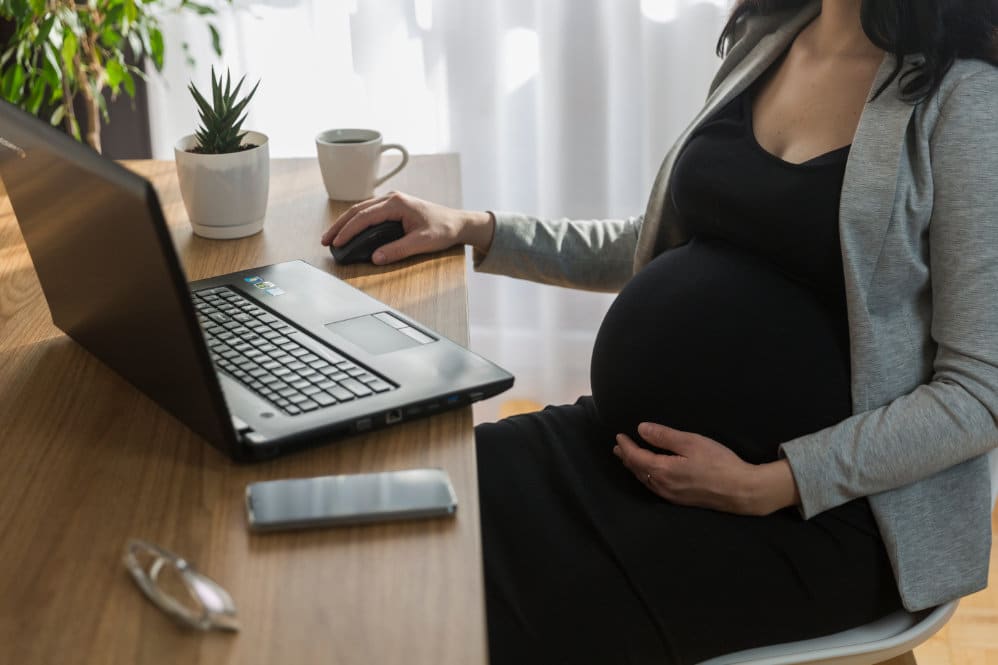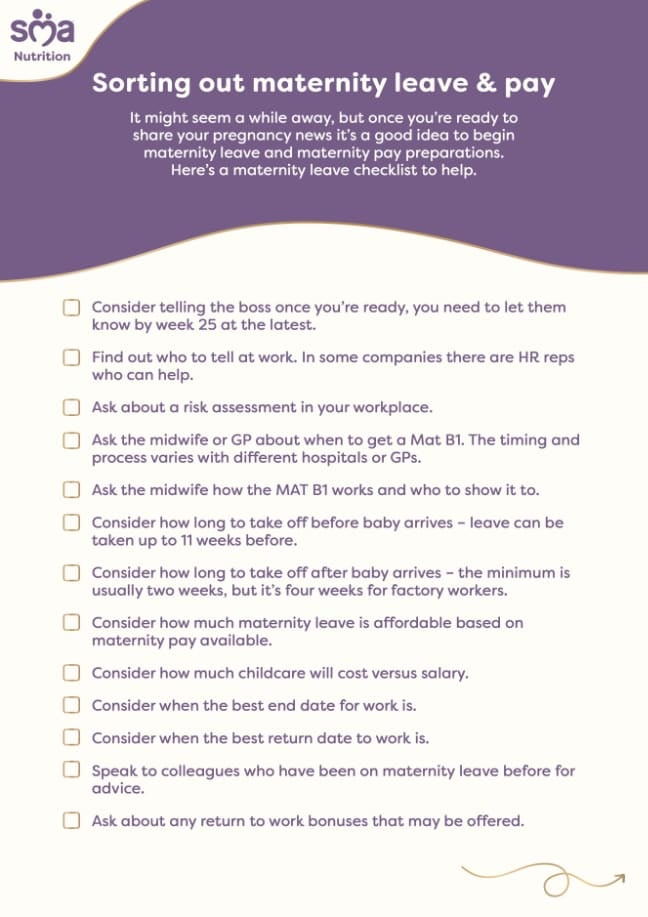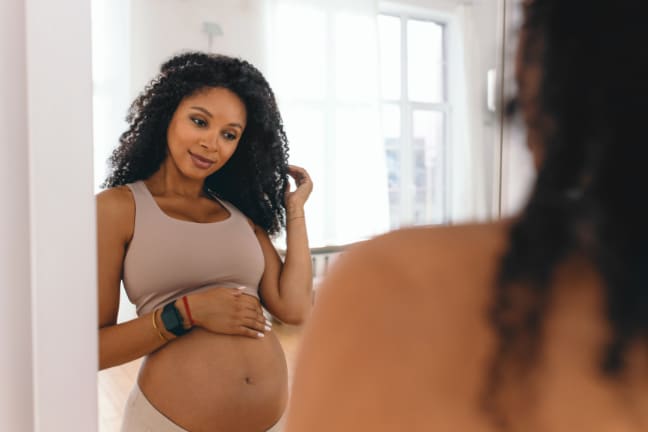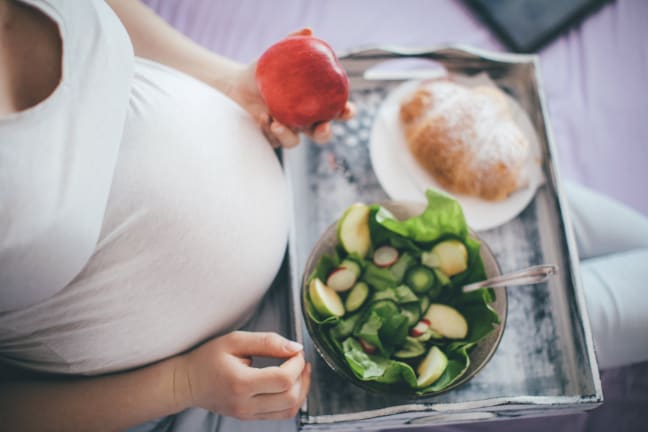Introduction
At week 29 baby’s eyes can open and shut now. Although they tend to stay shut. Ankles disappearing? Rings tight on your fingers? Find out how to tackle water retention in this article. Eat iron-rich foods to help promote the production of red blood cells, see our list of iron-rich foods. Find out more on things to consider when planning maternity leave and what to expect at 29 weeks pregnant.
What happens at 29 weeks pregnant?
The size of your baby at 29 weeks pregnant is roughly the size of a butternut squash and taking up more room in your tummy by the day. Expect to feel lots of kicking, rolling and wriggling but they won’t be squashed for long, the big wide world isn’t far away.
Baby’s eyes can open now, but as there’s not much scenery in there they’ll be snoozing for up to 20 hours a day. Their retinas haven’t fully formed yet but their vision will come on leaps and bounds over the next few weeks and they’ll be able to notice changes in light through the lining of your stomach. By the time you’re holding baby in your arms, their sight will be good enough to see mummy’s face about 30cm away. Love at first sight? Oh yes.
What happens to your body at 29 weeks pregnant?
Ankles disappearing? Rings tight on your fingers? Swelling in pregnancy is another normal side effect of having a baby. It’s caused by the extra fluid and blood in your body, which is needed to help soften and expand your uterus for labour. Symptoms increase later in pregnancy and can be affected by the heat. You might feel a bit puffy in your hands, face, legs, ankles and feet – it may not be your best look but it usually happens more in the evening especially if you’ve been on your feet all day.
Normally you’ll wake up in the morning feeling swell-free, but if swelling remains or increases, contact the hospital so the possibility of pre-eclampsia can be ruled out.
Varicose veins in pregnancy are another normal symptom due to extra blood flow and hormones. Many mums-to-be experience this side effect but thankfully it usually fades away after birth.
Here’s a few ways to help with both:
- Drink lots of water
- Put your feet up when you can
- Try and stay cool
- Exercise
- Avoid strappy shoes and heels
What to eat at 29 weeks pregnant?
Your blood volume has increased by about 1.5 litres since the beginning of your pregnancy. This is to make sure enough blood flows to the placenta.
However, while plasma volume increases by about 50%, red blood cells only increase by around 30%. It could mean you develop anaemia, which is quite normal during pregnancy and nothing to worry about. If you are at all concerned speak to your GP.
Try to drink plenty of water to replenish your total blood volume and eat iron-rich foods to help promote the production of red blood cells.
Here are some foods rich in iron:
- dark-green leafy vegetables, like spinach and curly kale
- iron-fortified cereals or bread
- brown rice
- pulses and beans
- nuts and seeds
- meat, fish and tofu
- eggs
- dried fruit, such as dried apricots, prunes and raisins
What are the symptoms of 29 weeks pregnant?
Week 29 pregnancy symptoms can include shortness of breath which is common in the third trimester. This is caused by the size of your womb and the position of your baby which can make it hard for the lungs to expand. If you have a large baby or have gained additional weight during pregnancy this can also cause shortness of breath. As the third trimester progresses your baby will move lower into the pelvis and so the shortness of breath should ease. To ease breathlessness, try the following:
- Eating smaller meals (little and often) can help as some women get more breathless after a large meal
- Stand upright with your hands above your head. This should give your lungs more space to take some deep breaths
- Doing some gentle exercise will make you breathless at the time of doing it but could help your breathlessness overall. Try gently walking or swimming
As long as you don’t have any other worrying symptoms then a bit of breathlessness will not harm either you or your baby. If you are at all concerned about the level of breathlessness, then speak to your midwife.
How to plan for maternity leave
For a working mum, figuring out when to begin maternity leave is one of the big decisions.
Should you take a few weeks to relax at home and prepare for baby? Or should you work until close to your due date? It’s likely you’ll want to spend as much time as possible with your newborn before heading back to work. Naturally it’s a personal choice and every mum-to-be has a different set of circumstances to consider. Here are some questions to consider:
- Is your job very physical?
- Are you on your feet all day at work?
- Are your symptoms bearable at the moment?
- Are you able to work from home sometimes?
- Do you have a long journey into the office?
It’s also important to understand the different types of parental leave and the maternity pay you are entitled to. You can also download our handy maternity leave checklist.
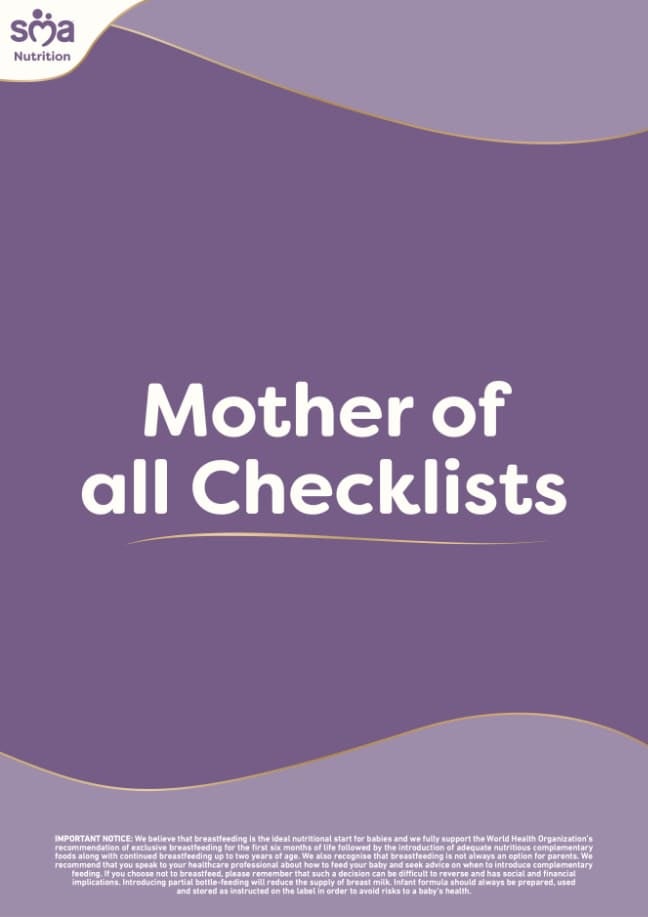
Join SMA® Baby Club to receive the Mother of all Checklists. With 63 checklists across your parenting journey from pregnancy through to toddlerhood we have you covered.



